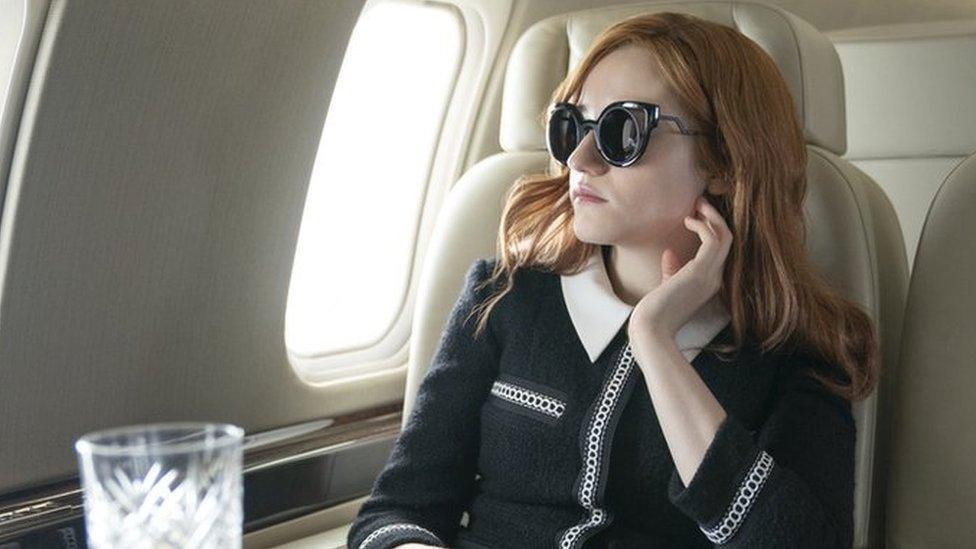The legal battles behind Anna Delvey’s Dancing With The Stars debut
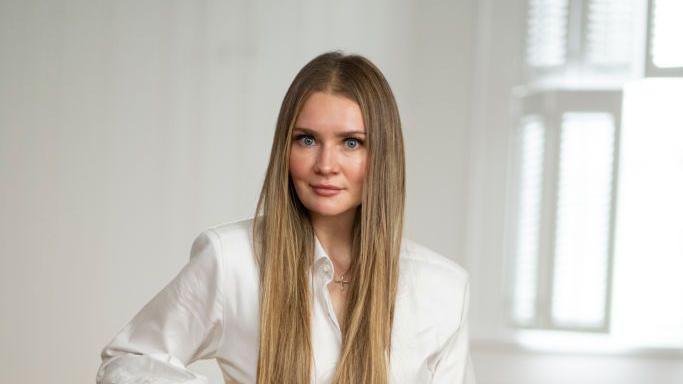
- Published
Dancing with the Stars is known for its glitz and glitter, and a staple of US television for almost 20 years. But on Tuesday during the show’s prime-time season premiere, there will be a twist, when convicted fraudster Anna Delvey - real name Anna Sorokin - takes to the floor wearing a bejewelled ankle monitor.
In a press release, Disney-owned ABC called Sorokin “an artist, fashion icon and infamous NYC socialite”, as well as “a notorious ankle bracelet fashionista”. She will be joining a cast that includes an NBA veteran, various reality-TV stars, and two Olympians, for the latest edition of the US spin-off from the BBC's Strictly Come Dancing format.
Critics accused the channel of glamorising her past crimes. The New York Post called it a “new low for pop culture”.
Some have also questioned how she has right to live and work in the US, as a German-Russian citizen.
Sorokin’s electronic ankle monitor is not for her original 2019 convictions, which came after she travelled the world masquerading as a European heiress, conning banks, lawyers and a private jet company out of more than $200,000 (£150,000).
Instead, the ankle monitor is the result of a years-long immigration battle in the US, where she is fighting deportation.
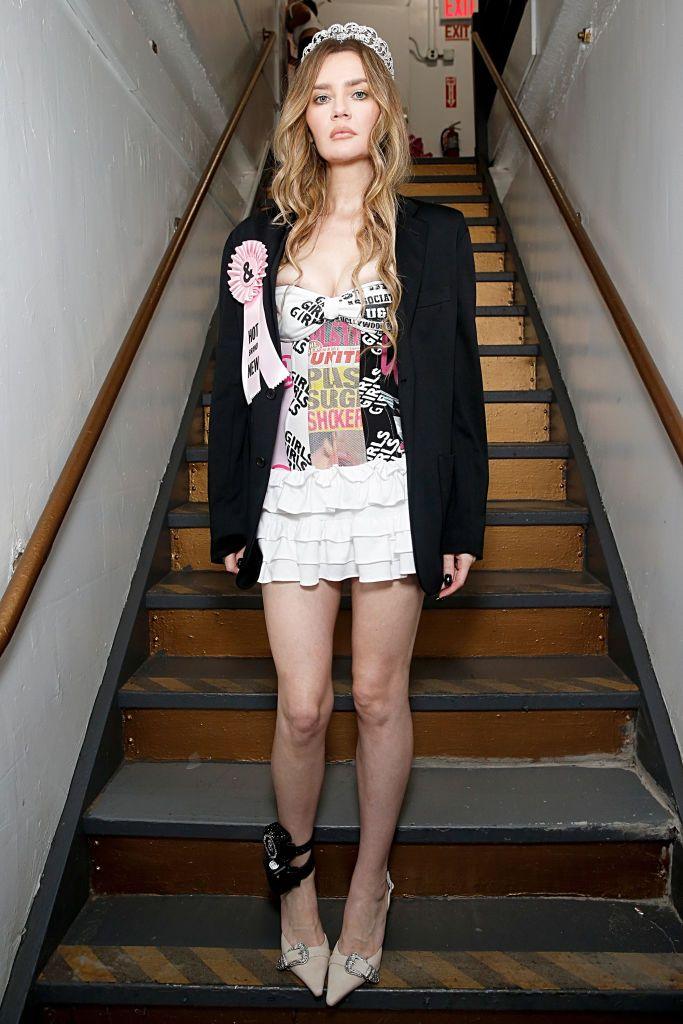
While on bail pending immigration charges, Anna Sorokin has attended New York Fashion Week, appeared in Vogue and started her own podcast
Debates online are raging over this new chapter of infamy.
Some appear to admire her endless ambition, as if she represents some sort of warped American Dream. Others have slammed her continued self-promotion and seeming lack of remorse as shameless.
During a heated discussion on The View talk show, Whoopi Goldberg said her ability to appear on Dancing with the Stars, despite facing immigration charges, is an example of a “two-tier immigration system” that favours the wealthy or connected.
Others have said it's hardly surprising to see her convictions being overlooked in a country where a felon is running for president.
Sorokin first gained notoriety when New York Magazine published an investigation into her misdeeds in 2018. Her scams were later explored in the Netflix series Inventing Anna and BBC podcast Fake Heiress.
It was the audacity that intrigued people. She had worked her way into elite circles in New York City in a ruse that lasted for years. Her goal was to secure a $22m loan to build an arts foundation in her own name.
While living under the heiress persona, she forged bank statements, ran up large bills at luxury hotels that she couldn’t afford, dashed out of restaurants without paying, bounced cheques, created fake emails from accountants, and let others pick up her tabs after extravagant spending. Small businesses and individuals were also affected.
“She’s been a public figure for a long enough time that I don’t think people remember the details of what the crimes were – if ever they really knew them in the first place,” said Jessica Pressler, who wrote the first piece on her in New York Magazine, and became the inspiration for the fictionalised journalist character in Inventing Anna.
“People don’t look that far past the surface,” she added, acknowledging this is what aided the original grift. “Dancing With the Stars… it’s a natural extension of the story.”
Rise and fall
Sorokin was arrested in 2017 while on the run in California and went on criminal trial in New York. In 2019, she was found guilty of eight theft-related charges, and sentenced to between four and 12 years.
That was part one of her legal struggles.
After serving almost four years, including time in the notorious Rikers Island jail, she was released in February 2021, and was expected to leave the US.
But she didn’t go.
Six weeks later – following a string of media appearances and having signed a paid TV deal with a German company – immigration authorities arrested her for overstaying her visa.
More than three years on, she is still fighting deportation. She has served time back in jail and under house arrest. In 2022, she was scheduled to board a plane in New York to return to Germany. But her lawyer intervened and she did not fly. Litigation regarding her deportation was ongoing, they said.
Her exact claims for asylum are unclear, but they are believed to relate to her Russian citizenship. She lived there in her early years but her family moved to Germany in her teens. When she was in New York in her 20s, she had a tourist visa.
- Published20 February 2021
- Published10 March 2021
While under house arrest, Sorokin started her own podcast and did interviews with various media. (Vogue magazine filmed a tour of her apartment in the East Village; Vogue UK wrote a “What is Anna Delvey reading?” feature.)
“Most of us would die of embarrassment at doing anything that she does,” said Pressler, describing how Sorokin stayed in a hotel for months without paying the bill and flew to Morocco with no money. “From staying in a hotel for months and not paying bills, to getting on a plane to Morocco with no money, no-one would do that. She does it with aplomb. I think on the whole any admiration people have for her is kind of limited to that.”
“They aren’t going to do these things, they don’t think the things she’s done are good, but the ordinary person wishes they could have that belief in themselves.”
John Sandweg - who served as the acting head of US Immigration and Customs Enforcement (ICE) during Barack Obama's presidency - is her current immigration lawyer.
He told the BBC that lengthy deportation cases are not uncommon in the United States, but this has been “fairly protracted”.
“Her criminal case has also been on appeal for a long time and that has had an impact,” he added.
He said her house arrest terms were “really restrictive”. “We challenged those. She was banned from social media. We argued that was unconstitutional,” he said. She wasn’t a flight risk or a danger to society, and she had kept to her parole conditions, he added.
As a result of the challenge, her bond conditions were relaxed in August. She is now back on social media and she has been permitted to travel to Los Angeles for the filming of Dancing with the Stars. She also has a social security number.
ICE confirmed to the BBC that she had received permission to travel. “Anna Sorokin’s conditions of release were amended by a Department of Justice immigration judge,” said the spokesperson.
Sorokin had to pay rent while under house arrest, but this also caused dispute. Her landlord filed legal action, saying she had failed to pay three months’ rent. Court documents show he claimed Sorokin owed more than $12,000. The case was eventually resolved and she moved out.
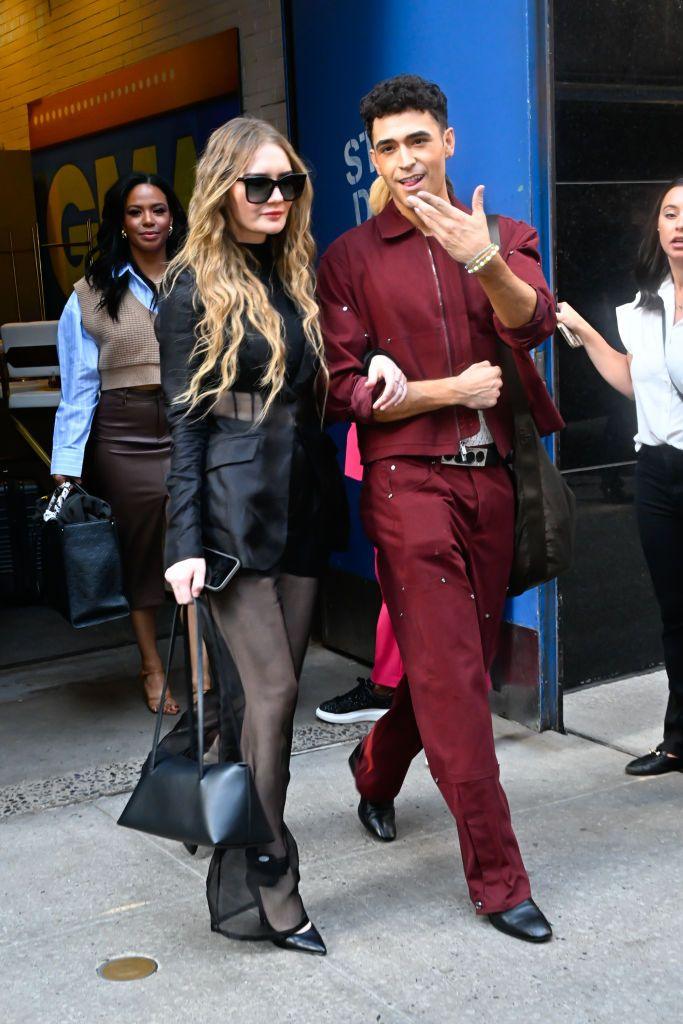
Anna Sorokin with her Dancing with the Stars dance partner Ezra Sosa
Sorokin has employed plenty of lawyers in recent years. The funding is believed to have come from media deals and sales of her prison artwork.
Netflix controversially paid Sorokin $320,000 (£230,000) for her life story for its Inventing Anna series. After a state intervention, she was legally obliged to use some of that money to pay back the victims of her theft. But there was some money left over to pay for her lawyer in the original trial.
Netflix is facing a defamation trial, sparked by the series.
The case was brought by Sorokin’s one-time friend Rachel Williams, who was portrayed in the show.
Williams wrote a book My Friend Anna about their short-lived friendship and how it fell apart after she was left to foot a $62,000 bill at a luxury resort in Morocco.
The lawsuit argues that Netflix used her real name and biographical details in its Inventing Anna series, but she was unfairly depicted as a "vile and contemptible person".
Netflix, in an attempt to dismiss the lawsuit, said their interpretation of Williams was open to “literary licence” and protected by the First Amendment, according to Variety magazine.
Sorokin is not involved in that case, although she has been subpoenaed as a witness for the trial.
Williams’ lawyer Alexander Rufus-Isaacs told the BBC that the case was expected to come to trial next year.
He said Sorokin’s employment on Dancing with the Stars was “glamorising and minimising the crimes she committed, and minimising the impact on the people she hurt”.
In court, Sorokin was found not guilty of the charge related to the Morocco trip. American Express eventually refunded Williams, but after she had suffered a long period of stress and anxiety, according to her book.
While some have viewed Sorokin as an anti-establishment hero for infiltrating and embarrassing wealthy institutions, Williams did not see it that way. She previously told the BBC: “The system that Anna was seeking to undermine… she wasn’t doing it out of some altruistic nobility, she wanted to be a part of them.”
In response to the recent backlash, Dancing with the Stars boss Conrad Green told Variety: “Yes, [Sorokin] had the issues she’s had, but we’ve had other people on the show who’ve had criminal issues in the past. She served her time. I think it’s perfectly valid for her to be on the show.”
For more on the rise and fall of Anna Delvey, listen to the BBC's podcast Fake Heiress.
Related topics
- Published26 April 2019
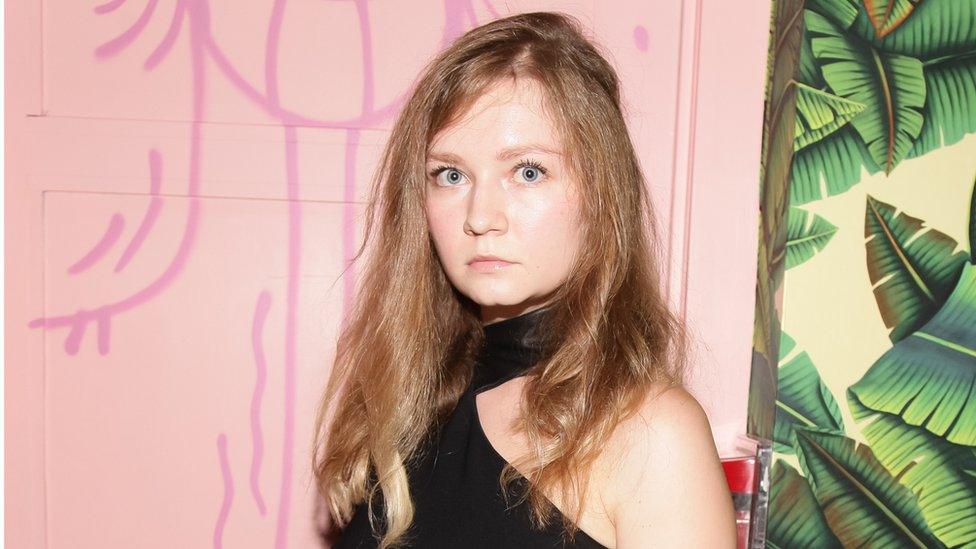
- Published10 March 2021
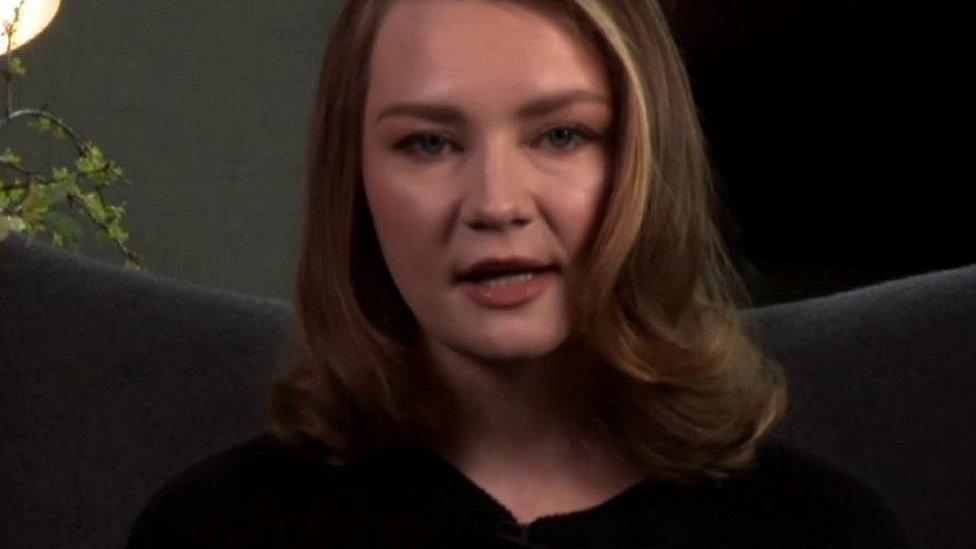
- Published2 April 2021
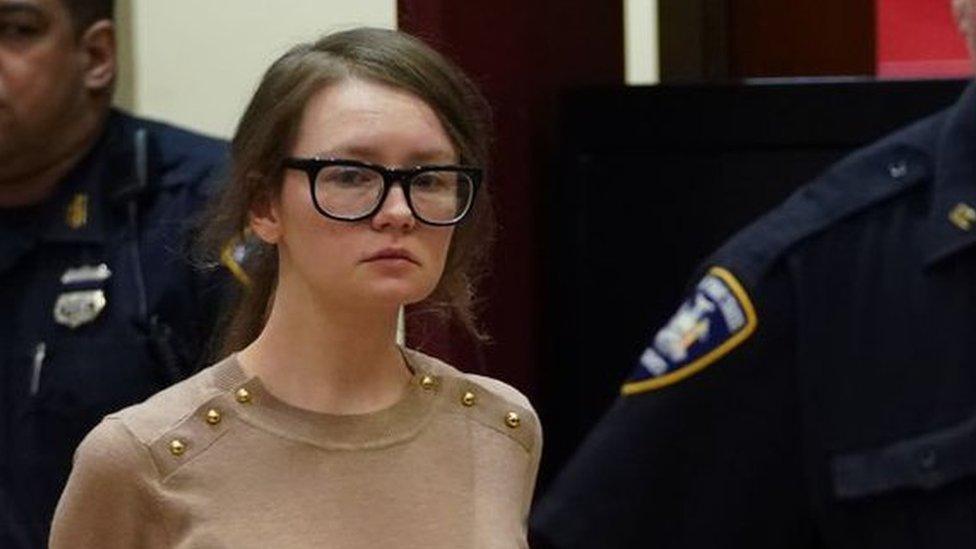
- Published11 February 2022
